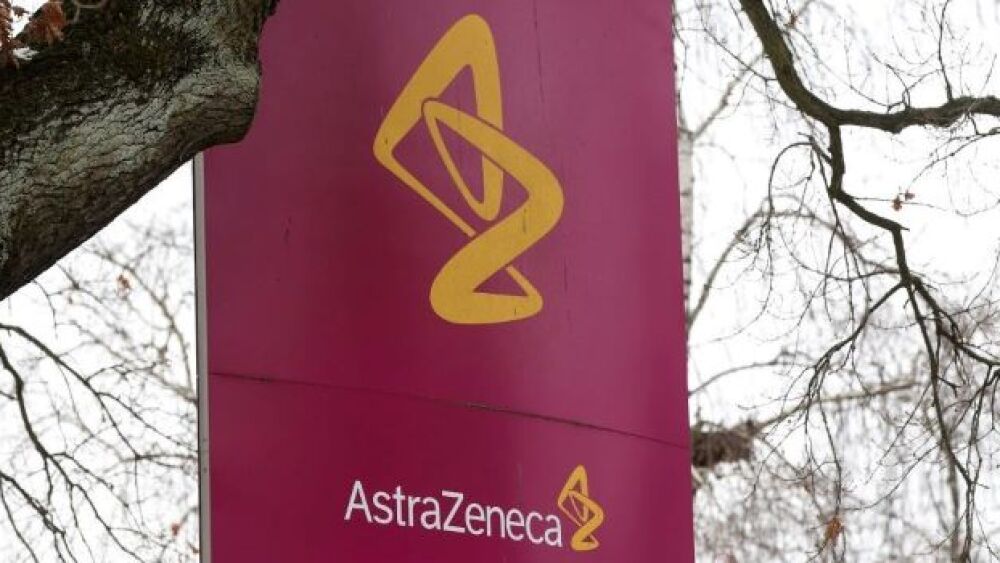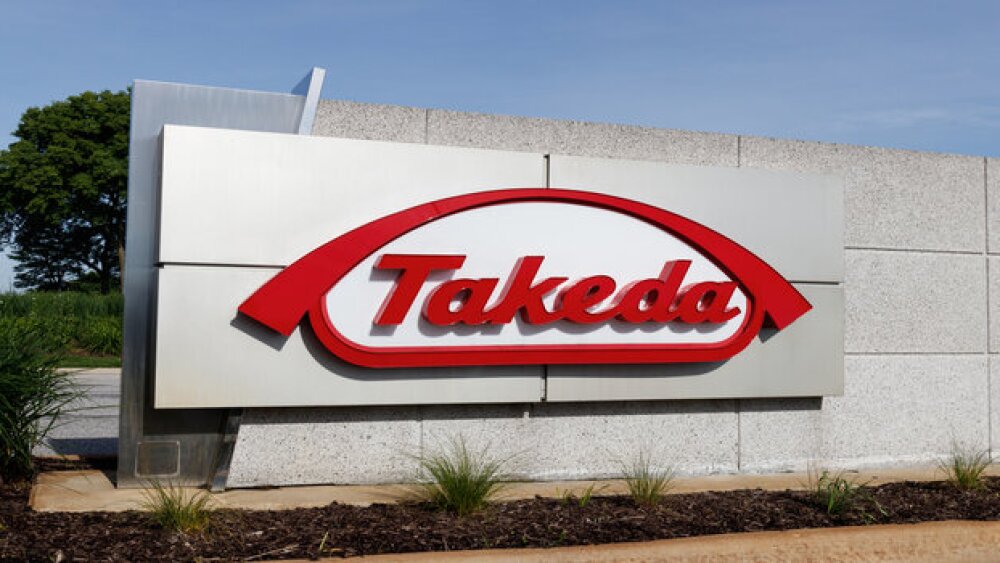The failure marks a setback in the hunt for means other than vaccines to provide protection against the novel coronavirus and its variants.
Bodo Marks/picture alliance via Getty Images
Shares of AstraZeneca have dipped in premarket trading after the company announced its COVID-19 antibody therapeutics failed to provide high levels of protection for individuals who have had contact with a symptomatic COVID-19 patient.
This morning, AstraZeneca said the Phase III STORM CHASER trial assessing AZD7442, a long-acting antibody (LAAB) combination, failed to meet the primary endpoint of post-exposure prevention of symptomatic COVID-19 compared to placebo. The failure marks a setback in the hunt for means other than vaccines to provide protection against the novel coronavirus and its variants.
The STORM CHASER trial assessed AZD7442 in unvaccinated adults who had confirmed exposure to an individual infected with COVID-19 within an eight day period. Participants tested negative on the day AZD7442 was administered in order to exclude prior infection. Study data showed that AZD7442 reduced the risk of symptomatic COVID-19 by 33% compared to placebo. The results were not statistically significant.
Data from some subsets in the study were more encouraging. In a pre-planned analysis of patients who were positive for COVID-19 based on PCR tests and PCR negative participants, AstraZeneca said AZD7442 reduced the risk of developing symptomatic COVID-19 by 73% compared with placebo in participants who were PCR negative at time of dosing. Data from a post-hoc analysis in PCR-negative patients, AZD7442 reduced the risk of developing symptomatic COVID-19 by 92% more than seven days following dosing, and by 51% up to seven days following dosing.
Full results from STORM CHASER will be submitted for publication in a peer-reviewed medical journal and presented at a forthcoming medical meeting.
While STORM CHASER failed to meet endpoints, Mene Pangalos, head of BioPharmaceuticals R&D at AstraZeneca, said the company is encouraged by the protection of the antibody provided for PCR negative participants. He said the company is awaiting results from the Phase III PROVENT pre-exposure prevention trial, as well as the Phase III TACKLE study assessing the antibody in preventing more severe disease in order to more completely understand the role AZD7442 may be able to play in protecting against COVID-19.
“The results of STORM CHASER suggest that AZD7442 may be useful in preventing symptomatic COVID-19 in individuals not already infected. The PROVENT trial will give us more clarity in this patient population,” Myron J. Levin, Professor of Pediatrics and Medicine at the University of Colorado School of Medicine and principal investigator on the trial said in a statement.
“While COVID-19 vaccination efforts have been successful, there is still a significant need for prevention and treatment options for certain populations, including those unable to be vaccinated or those who may have an inadequate response to vaccination.”
AstraZeneca is in talks with the U.S. Government regarding a $205 million extended agreement to provide up to 500,000 doses of AZD7442 should the antibody receive Emergency Use Authorization from the U.S. Food and Drug Administration.
The STORM CHASER data follows a rocky rollout for AstraZeneca’s COVID-19 vaccine, which has been plagued by concerns over blood-clotting issues. Yesterday the European Medicines Agency added another side effect warning to the vaccine, capillary leak syndrome, which causes plasma to leak into other parts of the body and can cause a sharp decline in blood pressure. This morning, the company did note that its vaccine is 92% effective against the Delta variant, which is a variant of concern in England and Scotland.





